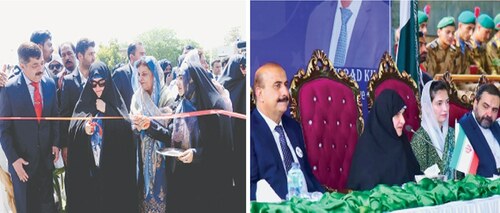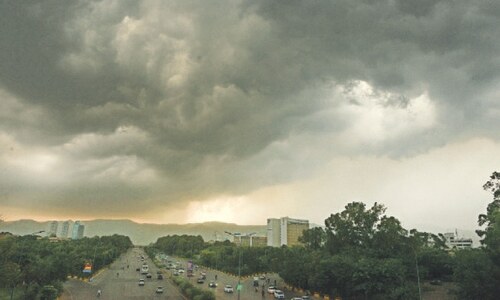ISLAMABAD: Former caretaker law minister and international law expert Ahmer Bilal Soofi on Monday said the government should ensure the outcome of peace talks with Tehrik-i-Taliban Pakistan (TTP) did not violate any international laws.
He was speaking at ‘Rule of Law and Counterterrorism – Role of Public and Private Sector’, a seminar organised by the Centre for Research and Security Studies (CRSS) on Tuesday.
Others who spoke on the occasion included Stockwell Green Community Services, UK, Chairman Toaha Qureshi, former Intelligence Bureau director general Dr Shoaib Suddle and CRSS Executive Director Imtiaz Gul.
Mr Bilal, however, took the audience by surprise when he said that proscribed organisations could take part in elections.
“As far as I think, banned outfits are not prohibited from contesting elections,” he maintained.
With regard to the expression of ‘rule of law’, he said it had to be interpreted in accordance with the constitution.
He was of the view that the courts should hold in-camera proceeding of cases of a sensitive nature.
Speaking on the occasion, Toaha Qureshi said Britain’s de-radicalisation programme could be replicated in Pakistan if rule of law was to be upheld.
The speaker from the UK said it was a decision by the election tribunal to disqualify a PML-N lawmaker and notify Maulana Mohammad Ahmed Ludhianvi, chief of the outlawed Ahle Sunnat Wal Jamaat (ASWJ) as the member of the National Assembly from the NA-89 Jhang.
Former Sindh inspector general Dr Shoaib Suddle warned that the attempt to revive executive magistrates was contrary to the constitution.
“We have all sets of rule except rule of law,” he regretted and said peace without justice was not possible.
Mr Suddle said Swat in 2009 was a classic example of absence of rule of law when the state lost control over eight out of 12 police stations in the area.
He warned that a Swat-like situation might emerge in other areas as well if a collective voice was not raised for rule of law.
Other speakers stressed that the elimination of terrorism and establishment of rule of law were imperative for socio-economic development of the country.
“If there is rule of law, nobody will choose the path of terrorism,” they said, adding Pakistan is facing multi-faceted challenges which need to be addressed on priority basis.
They were of the view that poverty, illiteracy, unemployment, prejudices, class distinctions and discrimination were the root causes of radicalism.
Speakers stressed the need of rehabilitating thousands of people who were in internment centres.













































Dear visitor, the comments section is undergoing an overhaul and will return soon.